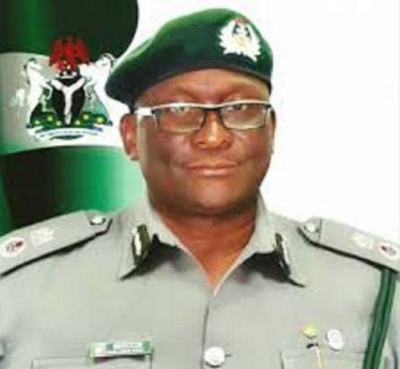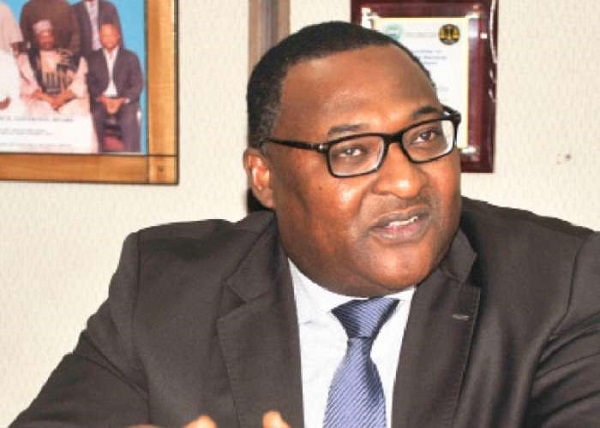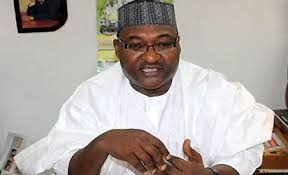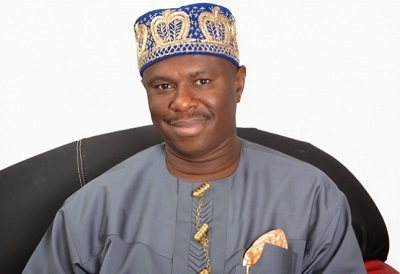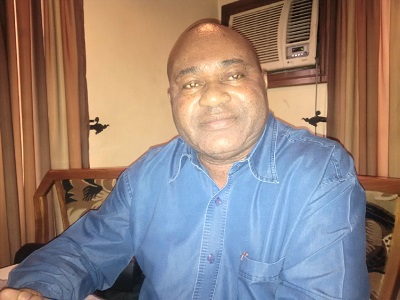NBS Should Input Shipping Services In Nigeria’s Economic Growth – NIMASA DG

The Director General of the Nigerian Maritime Administration and Safety Agency (NIMASA) recently held a media parley where he briefed journalists on the highpoints, challenges and modest achievements of the Agency in 2018. MMS Plus was there to bring you his comments. Enjoy it:
Innovation
We have issued software that provides a unique identification number for every vessel that arrives Nigerian ports. This would enable us prevent double entry and double billing. The former process was responsible for having shipping names appear in our books repeatedly for the last ten years. We also introduced the final billing system so you could settle our bills without it reflecting on our books again. This development is good for NIMASA and also good for the operators in the industry.
Regulatory Style
We don’t believe that regulation is about forcing everybody to comply rather we believe it’s about relationships. We can set the rules and standards and make it mandatory for everybody to comply but we have created a new approach involving stakeholders in what we call partnership.
We need such healthy partnerships to operate in the industry so we have changed our mode of operation to partnership. So, we all agree on compliance to the set standards and rules. With the final billing system we are available to ensure that vessels which berth at our ports are guaranteed quick turnaround time. This also creates room for accountability, transparency and efficiency so that we reduce the vessel turnaround time at our various ports.
Change In Crude Affreightment Terms
Another important development is our pursuit for the change of trade terms for crude affreightment from free on board (FOB) to cost insurance and freight (CIF). It’s a topical issue everywhere in the world and not only in Nigeria. I have done a study on shipping and found that very few countries utilize FOB because we know that the country that adopts CIF empowers its citizens for the carriage of goods.
It simply means that we will be creating lots of opportunities for shipowners to own vehicles and build their capacity, thereby creating wealth for our people. We are insisting that Nigerians develop the capacity to transport Nigerian crude which will enable them create more jobs for Nigerians. We have discussed at length with the Nigerian National Petroleum Corporation (NNPC) and also discussed with the government and I can say that it is yielding results.
Maritime Sector Contribution To GDP
We are also about to educate the National Bureau of Statistics (NBS). When you look at the NBS you would find that there is no provision for shipping or the maritime industry in the economy of Nigeria. The maritime statistics is very scarce and sometimes not available. So, we intend to engage them to ensure that they update their websites with statistics of the maritime sector especially as it contributes to the growth of the nation’s economy.
We have statistics to show that the maritime industry contributes to the development of the nation’s economy but the NBS needs to make use of these statistics in its reports. This is something that we are pursuing.
Environmental Protection
Another issue is that of environmental protection. Shipping would always have significant impact on our environment. The International Maritime Organization (IMO) has introduced some management regimes and I’m proud to say that Nigeria has been exceptionally commended in all IMO codes concerning the nation’s environment management. There hasn’t been any complaints from the IMO arising from shipping activities although there have been some complaints on areas that relate with the oil and gas sector. No complaint has arisen from the shipping services of the vigilance of NIMASA.
Maritime Security
It is the primary responsibility of NIMASA to ensure that ships that call at our ports are safe and secure. We ensure this under two principal programmes. One is the International Ship and Port Facility Security (ISPS) programme and the other one is the NIMASA maritime security strategy.
Under the ISPS code, we have grown compliance from the 13% it was in the past to 80% compliance. ISPS code came into force after the September 11 incident in the United States of America (USA). In the case of September 11 incident, the airport was used but that incident raised the awareness that such danger could also come via the seaports.
Hence, NIMASA has been more vigilant to ensure that port facilities comply with the ISPS code to the extent that we have grown our compliance level from 13% to 80% and we have also been commended by the Department of transportation at the United Kingdom and the United States Coast Guard. These are two major international players when it comes to security in maritime and the entire transport sector. NIMASA is concerned about the cases of piracy and armed robbery at sea on Nigerian waters. NIMASA has improved the surveillance within the nation’s waterways and we are collaborating with the Nigerian Navy to design several special programmes to patrol waterways especially in the Niger Delta region of the country. We have also reactivated our maritime domain awareness facility and the satellite surveillance system to give us a bird eyeview of the entire maritime space.
Today, if you come to NIMASA you can see all that is going on in the Nigerian maritime space and we are working very hard to build capacity and be able to respond when called upon. We are also acquiring the right vessels as well as special maritime vision aircrafts. We are working hard to train a new crop of military men that would be specially trained for maritime surveillance. We hope that in the next four months there would be evident changes in terms of maritime safety. However, we are working very hard to reduce to the barest minimum the number of pirate cases in the nation’s waterways.
It isn’t NIMASA’s primary responsibility to keep details of piracy attacks. Such records should be with the Nigeria Police. Piracy attacks are usually multidimensional. A number of arrests have been made but because of the way Nigerian laws are, proper prosecution has been very difficult. That is why NIMASA is pushing for the early passage of the anti-piracy bill which is before the National Assembly.
HLS International Contract
HLS was awarded the contract not to take over maritime security in the country. The company was supposed to deliver special mission vessels, special mission aircrafts and special mission helicopters. They were also supposed to retrain a number of our engineers. That contract is still in place and no one has cancelled it. However, at one point there were issues raised about the status of the firm and the President directed that further investigations be made on the firm was had been vindicated earlier. The firm was eventually given a clean bill of health after investigations and we carried on with that project. For us, handling maritime crime is a top priority issue which shouldn’t be ignored. I can say emphatically that the contract is still on. However, concerning the data of the number of vessels, it is important to note that not all vessels are detained on account of safety issues. Vessels could also be detained as a result of other factors.
Carbon Emission
The issue of carbon emission is a global problem. There are still ongoing discussions about vessels that aren’t complaint because most vessels are still powered by fossil fuel. As long as vessels are powered by fossil fuel there would always be pollution.
Single Hull Vessels
IMO set a deadline for the abolishment of single hull vessels and decided that for developing countries they would have a different deadline. That was what happened. The problem doesn’t apply to Nigeria alone but all developing countries and Nigeria would comply in due time.
NIMASA’s Helicopter
NIMASA acquired a helicopter several years ago but the agency didn’t have the personnel to man the helicopter so it was given to the Nigerian Navy. After a review by the Ministry of Defence, the President directed that the craft be handed over to the Nigerian Navy. However, the argument is that the helicopter has been phased out from search and rescue operations. The new approvals for the Nigeria Navy would cover helicopters that would also cover the areas of search and rescue operations. The current helicopter we own has been phased put from search and rescue operations so that is the state of the NIMASA helicopter.



